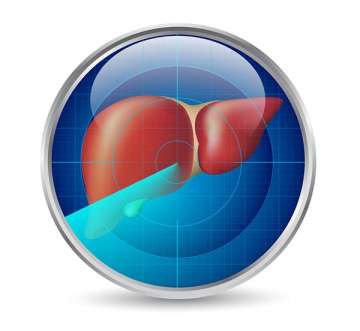About Us
Find your care
Our hepatology experts care for adults with common and complex liver disease. Call 310-825-2631 to make an appointment.
An estimated three million Americans have liver disease, and the incidence of some liver disorders is on the rise, according to the National Institutes of Health. Liver diseases result in 1.2 million hospitalizations per year and significant morbidity and mortality. UCLA's Hepatology Program offers the latest diagnostic and therapeutic methodologies for adult patients with all forms of liver disease and is an integral part of the Pfleger Liver Institute and Asian Liver Center.
Clinical

As part of our program, patients receive care from some of the finest and most experienced hepatologists, surgeons, diagnostic and interventional radiologists and surgical-critical- care specialists in the country. We are dedicated to the early diagnosis and timely treatment of liver disorders. Our nursing staff and other caregivers have experience in caring for patients with liver disease that exceeds what can be found in most other centers. UCLA's Hepatology Program includes the renowned liver transplant center at the Pfleger Liver Institute, one of the largest and most successful transplant programs in the world. In addition to liver failure, we treat a wide range of common conditions including liver diagnostic dilemmas, abnormal liver tests, ascites of all types, cirrhosis, portal hypertension, hepatic encephalopathy, hepatitis B, hepatitis C, drug- or herbal-induced liver injury, focal liver lesions, enlarged liver and/or spleen and fatty liver. We are able to provide a higher level of consultation that is particularly beneficial to patients with obscure disorders or who are not candidates for transplantation.
Research
UCLA gastroenterologists and hepatologists are focused on the rising trend of liver disease and growing need for research and specialized treatment. Our research is focused on the development of hepatocellular carcinoma and its links to HBV and HCV, HBV in Asian Americans and the prevention of recurrent viral hepatitis after liver transplantation. Studies are also proceeding on fatty liver and liver fibrosis and the role of cholesterol and LXR signaling in the biology of hepatic stellate cells, the principal cell that mediates liver scarring during chronic liver injury. Members of our team are also exploring the incidence of gallstones in patients with cirrhosis and quality-of- life concerns for patients with advanced liver disease. Patients attending our clinic may be candidates for one of our many clinical trials designed to test state-of-the-art therapies. Learn more about our research